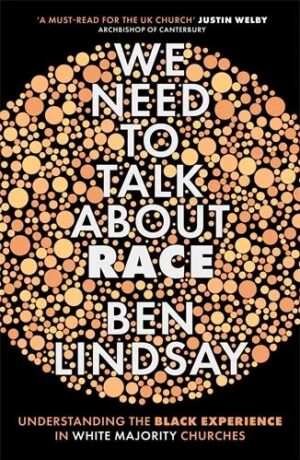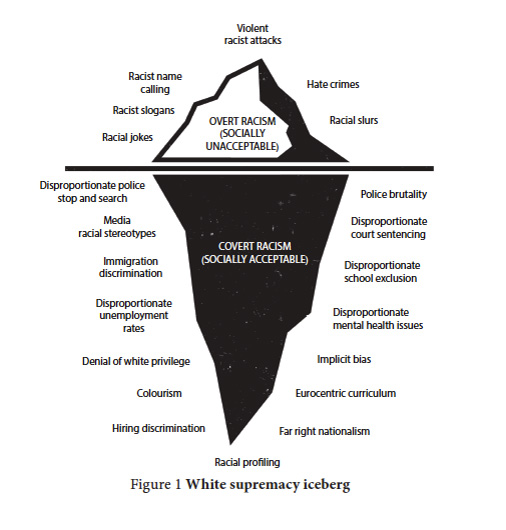



The harsh reality is race, ethnicity, religion, gender, disability status and related categories all continue to determine the life chances and wellbeing of people in Britain in ways that are unacceptable and in many cases unlawful.
Professor Tendayi Achiume, UN’s special rapporteur on contemporary forms of racism, racial discrimination, xenophobia and related intolerance, May 2018
This is the first of our four-part series based on Ben Lindsay’s book, We Need to Talk about Race. Each week we’ll begin with a short video introducing the session and there will be space for discussion, reflection, Bible study and prayer. This session covers the first two chapters of the book and speaks into the issues of racial injustice in society and the church. It is helpful to have already read the first two chapters or listened to the audiobook, but if not you can still engage with the content in a meaningful way.
Watch Ben’s video and share with your group what made you decide to engage with this series and what you hope to get out of it.
Is there a level playing field for black people in the UK?
Ben’s book begins with a painful racist experience he encountered, followed by a lament about the church’s failure to address issues of race that affect Black people in particular. He goes on to look at the racial landscape in the UK and asks the question ‘Is there a level playing field for black people?’.
The following statistics lay out some racial disparities affecting Black people and other minority ethnic groups in the UK and seems to suggest that things remain unequal.
The National Child Traumatic Stress Network defines secondary traumatic stress as: the emotional duress that results when an individual hears about the first-hand trauma experiences of another. Its symptoms mimic those of post-traumatic stress disorder (PTSD). Accordingly, individuals affected by secondary stress may be themselves re-experiencing personal trauma or notice an increase in arousal and avoidance reactions related to the indirect trauma exposure.
Ben suggests that in his experience, the church has often found it difficult to empathise with issues that ‘excessively impact black people’ . A common response is that churches are afraid of saying something wrong, but he argues that until the majority culture engage with minority culture issues, structural injustices will remain.
The exploration of the ‘white supremacy iceberg’ is in order to debunk the myth that the issue of white supremacy only lies with far-right racist ideology. He wants us to engage in a wider conversation that will unveil the sometimes visible, but often, hidden dimensions of structural racism and white superiority. The more white churchgoers engage with such issues, the more empathetic the church will become, but there must be an admittance of a problem in order to find solutions to melt the iceberg.
Take a look at the iceberg together and use the questions below to assist your discussions:

(They are categorised by audience as the response to these issues differs according to race and position in the community)
At the heart of Christianity is a desire for unity of humankind under the banner of Jesus Christ. We see God’s commitment and promise to Abraham, that through him God would build a unified, diverse body of believers – all nations being blessed. As the gospel crosses all cultures, ethnicities and nations let us consider how we can take steps to experience radical diversity today.
Pause after reading it the first time and then read it again immersing yourself in the words. As you reflect, what can you hear, see and feel? Take a few minutes to respond as a group then move on to the discussion questions below.
Pray for any issues raised during the session and to leave space for confession and repentance as appropriate.
Pray for the courage to disrupt racial injustice and to desire racial integration and reconciliation in your church and community.
[1] Cabinet Office (2017) ‘Race disparity audit’, October 2017 (revised March 2018), (available online here, accessed June 2020).
[2] Simon Burgess and Ellen Greaves, University of Bristol, CMPO (2009) ‘Test Scores, subjective assessment and stereotyping of ethnic minorities’, September 2009, p. 2 (available online here, accessed June 2020).
[3] Cabinet Office (2017) ‘Race disparity audit’, October 2017 (revised March 2018), p. 10 (available online here, accessed June 2020).
[4] Cabinet Office (2017) ‘Race disparity audit’, October 2017 (revised March 2018), p. 11 (available online here, accessed June 2020).